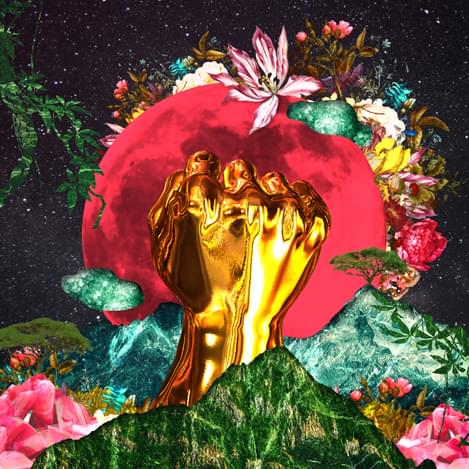Rina Mushonga's new album is a captivating celebration of turbulence
"In A Galaxy"

It was here where she found her first musical influences and began to bend the rules of music in class. She then moved to the Netherlands, making music in a Rotterdam basement, before relocating to Peckham. Rina’s geographic movement is brought to the fore in her second album, In A Galaxy.
Galactic imagery fits the album well, both in terms of pattern and randomness. Mushonga tackles a variety of genres, each with their own distinctive features. Yet, despite her clear nods to genre conventions, her music is interspersed with the unexpected. Whether this be influences from the street noise of Peckham, flute samples, panpipes or even dubstep, Mushonga’s second album welcomes the disruption, or relocation, of form.
"Pipe Dreamz" and "Good Vacation" introduce us to Mushonga the muscian, particularly through her vocals and engagement with funk. But it is on the third track, "For A Fool", that the album really kicks off. Mushonga’s vocals and sporadic percussions evoke an upbeat lightheartedness, but in its simplest form, the track is a sad love song.
These supposed contradictions are weaved throughout the album but are reassuring. "In A Galaxy" uses Afropop to remind us it is okay to feel emotional. As Mushonga sings the line "I’ve been reminded but I wasn’t ready", she tells us that the album is not a destination, but a process, and suddenly the intense genre-hopping makes sense.
"Narcisc0" is the unexpected gem of the album. From the opening guitar riff to Mushonga’s simple, yet relatable vocals – see ‘you know when nothing feels right?’ – this song is the perfect mix of eclectic sounds and universal emotions.
After "Tropix", the album’s bouncy midpoint, the momentum slows for the only ballad, "Glory". The pace soon awakens with the album’s triumph, "Atalanta".
In Ovid’s Metamorphoses, Atalanta is the ultimate powerful woman. She swerves gender norms, she is a hunter, and she cares very little for getting married. In Mushonga’s "Atalanta", similar traits are brought to life. The hook, "I’ll get up, I’ll get up", is a simple yet important reminder of autonomy.
The album is full of those moments where you pause and think, "this sounds so much like x", where the x in question could be anyone from Stevie Wonder, to Tracy Chapman, to Talking Heads (I hear all of these just in "Jungles"). Except the songs move so quickly, their off-beats preventing us from accurately predicting where they will go. It is in these shifts that we realise Mushonga’s music doesn’t really sound like anything else; it is its own thing. It is the product of her movement.
There is no settling down towards the end of the album. "Jungles" offers empowering harmonies, scattered beats and a satisfying slice of autotune. This could be the opening track, but as the closer, "Jungles" confirms Mushonga’s energy and innate desire to entertain.
Mushonga’s dynamic drifting between genres at first feels hectic, but her simple, universal lyrics make sure we can always engage with the music. Whether in Harare, Rotterdam or Peckham, Mushonga feels those most-human of emotions: heartache, isolation, pressure to conform, but refuses to be shackled by them. Instead, we are invited on her geographical and psychological journey, and encouraged to embrace the turbulence.
Get the Best Fit take on the week in music direct to your inbox every Friday

Prima Queen
The Prize

Femi Kuti
Journey Through Life

Sunflower Bean
Mortal Primetime





